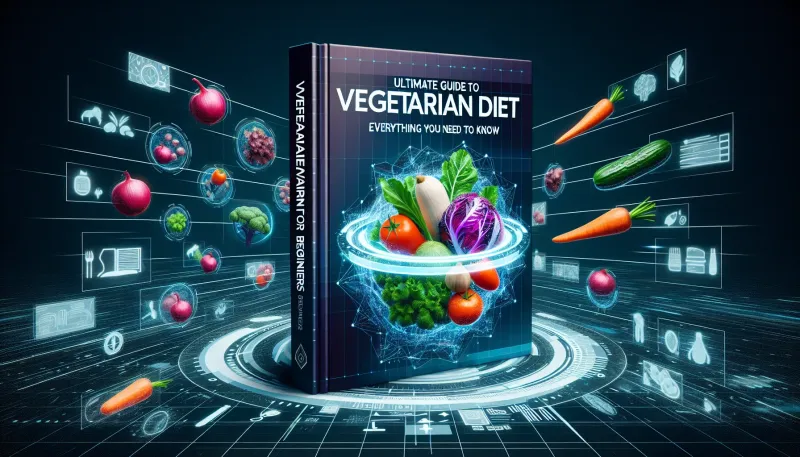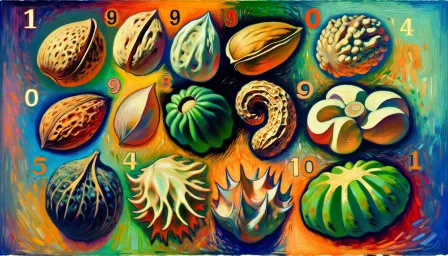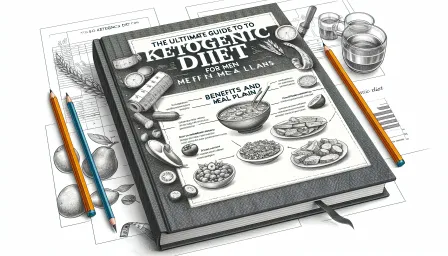Ultimate Guide to Vegetarian Diet for Beginners: Everything You Need to Know

Discover everything you need to know about starting a vegetarian diet as a beginner. This comprehensive guide covers health benefits, tips, and meal ideas.
Embarking on a vegetarian diet for beginners can be a rewarding journey towards better health and environmental sustainability. This comprehensive guide will walk you through everything you need to know about adopting a vegetarian lifestyle, from the basics to tips, nutritional advice, and meal ideas.
What is a Vegetarian Diet?
A vegetarian diet focuses on plant-based foods and excludes meat, poultry, and seafood. There are several types of vegetarian diets, each with different rules about what animal products, if any, can be consumed:
- Lacto-vegetarian: Includes dairy products but excludes eggs, meat, and seafood.
- Ovo-vegetarian: Includes eggs but excludes dairy products, meat, and seafood.
- Lacto-ovo vegetarian: Includes both dairy products and eggs but excludes meat and seafood.
- Vegan: Excludes all animal products, including meat, dairy, eggs, and honey.
Health Benefits of a Vegetarian Diet
A vegetarian diet offers numerous health benefits, including:
Improved Heart Health
A plant-based diet is rich in fiber, antioxidants, and healthy fats, which can help reduce the risk of heart disease.
Weight Management
Vegetarian diets are often lower in calories and high in fiber, which can promote healthy weight management.
Reduced Risk of Chronic Diseases
A diet rich in fruits, vegetables, and whole grains can reduce the risk of developing chronic conditions such as type 2 diabetes and certain cancers.
Essential Nutrients for Vegetarians
While a vegetarian diet can provide all essential nutrients, careful planning is necessary to avoid deficiencies. Here are some key nutrients to focus on:
Protein
Ensure adequate protein intake by incorporating a variety of plant-based protein sources such as legumes, nuts, seeds, tofu, and tempeh.
Iron
Plant-based iron sources include lentils, chickpeas, spinach, and fortified cereals. Consuming vitamin C-rich foods alongside iron-rich foods can enhance absorption.
Vitamin B12
Vitamin B12 is primarily found in animal products. Vegetarians should consider fortified foods or supplements to meet their needs.
Calcium
Dairy products are a common source of calcium, but leafy greens, fortified plant milks, and tofu can also provide this essential nutrient.
Tips for Transitioning to a Vegetarian Diet
Transitioning to a vegetarian diet for beginners can be smooth with these practical tips:
Start Gradually
Make changes gradually by incorporating more plant-based meals into your diet and reducing meat intake over time.
Experiment with New Foods
Explore vegetarian recipes and experiment with new ingredients to keep your meals exciting and varied.
Plan Your Meals
Meal planning ensures you have balanced, nutrient-dense meals and can help you avoid relying on processed vegetarian foods.
Stay Informed
Educate yourself about nutrition and stay informed about the best plant-based sources of essential nutrients.
Sample Vegetarian Meal Plan
Here's a simple meal plan to get you started on a vegetarian diet:
Breakfast
Overnight oats with almond milk, chia seeds, and mixed berries.
Lunch
Quinoa salad with black beans, corn, avocado, and a lime-cilantro dressing.
Dinner
Stir-fried tofu with vegetables and brown rice.
Snacks
Fruit, nuts, hummus with carrot sticks, or yogurt with granola.
Common Myths About Vegetarian Diets
Dispelling common myths can help clarify misconceptions about vegetarian diets:
Myth: Vegetarians Don't Get Enough Protein
Fact: Plant-based proteins are abundant and varied, allowing vegetarians to easily meet their protein needs.
Myth: Vegetarian Diets Are Boring
Fact: A vegetarian diet can be incredibly diverse and flavorful with a variety of plant-based ingredients and cuisines.
Myth: Vegetarian Diets Are Incomplete
Fact: With proper planning, vegetarian diets can provide all essential nutrients for a healthy lifestyle.
Conclusion
Adopting a vegetarian diet for beginners is a meaningful step towards a healthier and more sustainable lifestyle. By understanding the fundamentals, focusing on essential nutrients, and planning your meals, you can enjoy the many benefits of a vegetarian diet. Start gradually, experiment with new foods, and dispel any myths that may hold you back. Embrace the journey towards a vibrant and nutritious vegetarian lifestyle!



























